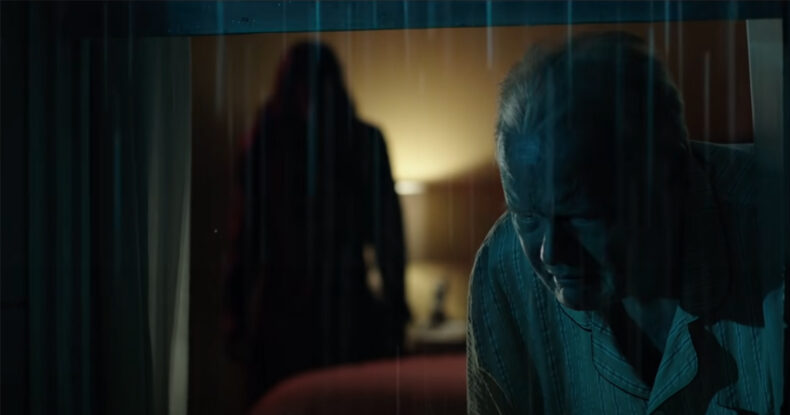Tags
In an age where the box office has long been plagued with tired reboots, sequels, and crossovers, moviegoers have begun to express in louder and louder voices that they are ready for something new. Every once in a while during times such as these, a special film comes along to turn the cinema world on its head. James Wan’s Malignant is one such film — a horror picture with a fresh, contemporary take on “giallo,” which is a film genre that I must assure you that I definitely did not just learn about a few hours ago while scrolling through Letterboxd.
You may be asking yourself, “What is giallo?”
I am happy to answer this question because I’ve known about giallo for a very long time. No, it’s not a fruit-flavoured gelatin dessert, you idiot. Giallo is a subgenre of horror popularized in the 1970’s by masterful Italian works like Daria Morgendorffer’s Disturbia, Mario Luigi’s Bird With the Fucked Up Tail, and Lucario Fulci’s Lady Wearing, Uhh, Like A Big Snake Skin or Something. Wait, you’ve never seen those? Really? Wow, that’s embarrassing. I’ve seen them all like, twice each at least.
A cornerstone of giallo is that a lady has to go crazy and witness a bunch of murders. Or maybe she commits the murders? I’m pretty positive one of those two things happens in Malignant. There’s also a weird guy you think is doing it, but maybe not really? Well, the lady is certainly there to either see and/or commit the murders. I think. No matter how you slice it, it’s a bizarre and fucked up mess that doesn’t scan as fully intentional, which checks all the giallo boxes for me, an expert on giallo.
In closing, Malignant is an instant classic that not only elevates the tropes of Italian horror, but teaches us something about ourselves along the way. In the end, those we hold dear are always with us in our hearts. And sometimes dormantly slumbering within our brains.

